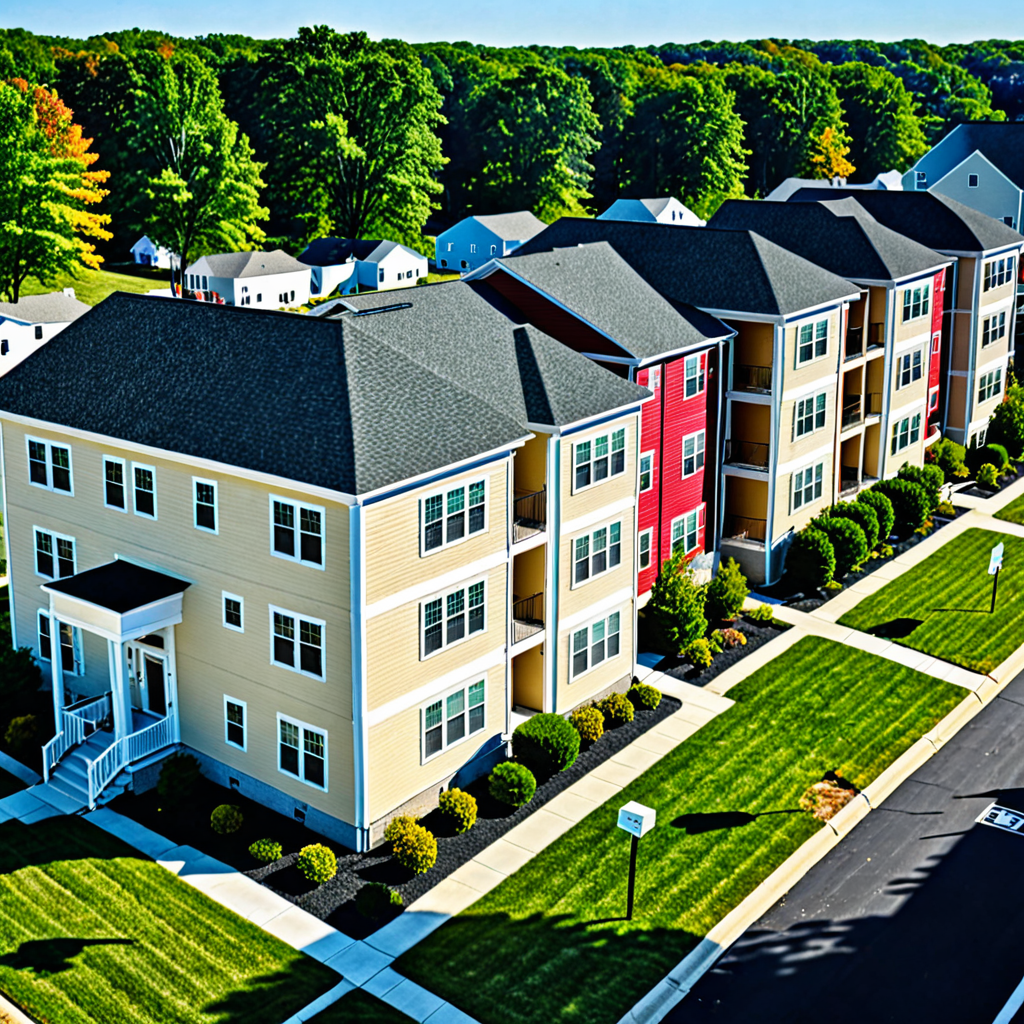
Imagine looking for an apartment in Connecticut. With rents always increasing, it feels out of reach. Looks like you are not alone in struggle. Cost of living is getting ever more expensive in Connecticut Cheap housing is getting less and less available. This article offers a guide. It tells you how to find housing in CT to afford.
A Primer on the Affordable Housing Crisis in Connecticut
Now more than ever we need affordable housing. But what, exactly, is “affordable housing”? How serious is the problem in Connecticut? Let’s take a closer look.
What Does “Affordable Housing” Mean?
Affordable housing also means you pay no more than 30% of your income on housing. This covers rent and utilities. If you spend more, other bills may go unpaid.
CT Housing Affordability Facts and Figures
The cost of housing in Connecticut is high. The median income doesn’t always push on. Many families find it hard to secure affordable spots. Some cities are especially pricey (Stamford, Greenwich). Data shows a big gap. It’s the gap between what people make and what housing costs.
Reasons Behind the Shortage
There are many factors that can limit affordable housing. Zoning laws can restrict new development. Construction costs are typically high. The population of the state continues to grow, with it the demand.
Government Programs and Initiatives
There are also a number of programs that the government is trying to help with. These programs are part of federal, state and local efforts. Their goal is to make housing more affordable.
Connecticut Department of Housing (DOH) Programs
Help is available from the Connecticut Department of Housing (DOH). Those in need can eligible to rental assistance. Assistance for homeownership can help make purchasing a house possible. Another option for low-income families is public housing.
Federal Programs: HUD & Section 8

There have also been programs from the federal government, including HUD and Section 8. These programs offer rental assistance. They make housing affordable for low-income families. They each have their own rules and processes to apply. You are going to want to look at them closely.
Local City and Town Efforts
Some cities and towns have their own programs as well. Income tax credits could assist developers in constructing affordable units. These local initiatives can be hugely impactful.
Humanitarian organizations and services
There are non-profit groups that can help. They assist people in finding and obtaining affordable housing. These groups provide services, such as counseling and money assistance.
Non-Profit Organization Listing
There are a number of groups that work very hard in Connecticut. Look at organizations such as the Connecticut Housing Coalition and the United Way. Various local charities also provide support.
jojop58yservices offered by non profits
These organizations offer various services. Counseling: Family members learn about their options. Financial aid can also pay for application fees. Housing search assistance identifies vacant units.
Success Stories
Tons of folks have found affordable housing through these groups. They hold the promise of a better life. Their stories are a reminder that help is out there.
Some Practical Tips to Help You Find Affordable Housing in CT
It is just not easy threading the needle of affordable housing. Here some advice to help you get started. It is all about research and reach out.
Permanent Residency Requirements
Rules vary from program to program. Before submitting an application,ensure you to meet the requirements. This saves time and effort.
Making Use of Online Resources and Databases
The search is easier with online resources. 211ct.org and similar websites list available units. You can also visit the Connecticut Housing Finance Authority (CHFA) website.
Networking and Networking tooling
Speak with local housing organizations and community groups. Opportunities are hidden — networking can uncover them. Relationships are extremely valuable.

Know Your Rights as a Tenant
It is important to know your rights as a tenant. Connecticut law shields tenants from unfair treatment. So, you sort of get empowered with understanding these rights.
Connecticut Fair Housing Laws
Connecticut’s fair housing laws prohibit discrimination. Landlords cannot discriminate on the basis of race, religion or family status. These protections mean that all have equal access to housing.
Lease Agreements and Security Deposits
Lease agreements dictate the rules of your rental. The law limits security deposits. Landlords are required to return them in a timely manner. Understanding these rules safeguards your interests.
Where to Find Legal Help
Legal resources for housing problems are available. Connecticut Legal Services offers free help. Other groups also provide legal advice.
Conclusion
It can be hard to find affordable housing in CT, but it is doable. There’s a lot of help out there in the form of programs, organizations, and resources. Knowing your rights can be vital. Consider the options mentioned in this article. Call to Action Claims Adjusters are brought in after disasters to oftentimes tell people to go away.


